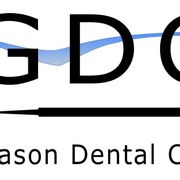
A root canal is a procedure that saves a badly-infected tooth from extraction. Also known as endodontic therapy, it eliminates the pain associated with a compromised tooth, among other benefits. Learn more about this common dental solution and what it involves here.
Frequently-Asked Questions About Root Canals
What is it, exactly?
During endodontic therapy, a dentist numbs the affected area with local anesthesia before drilling into the tooth to remove infected material from the tooth canal, including pulp containing blood vessels and nerves. The canal is thoroughly cleaned and disinfected, then filled with a synthetic material called gutta-percha. Next, the dentist seals the canal using a special dental sealant and might place a crown, or cap, over the tooth for additional protection. The tooth is now pulp-free.
Why do I need one?

A badly-infected tooth where the infection reaches the pulp requires a root canal to prevent related problems such as abscesses, intense pain, hot and cold sensitivities, and swollen gums. Without the procedure, the entire tooth breaks down and needs extraction to avoid the infection spreading to the jawbone, blood, and even the brain. Endodontic therapy is also necessary for a severely-cracked or broken tooth that is continually exposed to mouth bacteria and at risk of infection.
What are the benefits?
Root canals save teeth from severe pain and the related consequences, including chewing discomfort, infections that reach other parts of the body, and extractions. Treated teeth maintain their appearance and function but no longer contain blood vessels and nerves. They are subsequently impervious to decay but still need care to avoid damage. Proper dental care also keeps the remaining natural teeth healthy and decay-free.
What does recovery entail?
Mild tenderness is normal as the anesthesia wears off. Taking OTC anti-inflammatory pain medication provides relief, as does eating soft foods for a few days. Yogurt, pureed fruits and vegetables, and soft breads and cheeses are among the recommended foods. It is also helpful to maintain your brushing and flossing regimen to prevent mouth bacteria from building up around the affected tooth and causing gum irritation, and to schedule follow-up appointments with your dentist.
If you think a root canal is right for your dental health needs, contact Gleason Dental Clinic. Serving Beatrice, NE, and the surrounding areas, this practice features three dentists, offers flexible scheduling, and uses only the most technologically-advanced equipment and tools. Call (402) 228-3119 today to make your appointment, or visit the dentists online for more information.
About the Business
(4 reviews)
Have a question? Ask the experts!
Send your question

